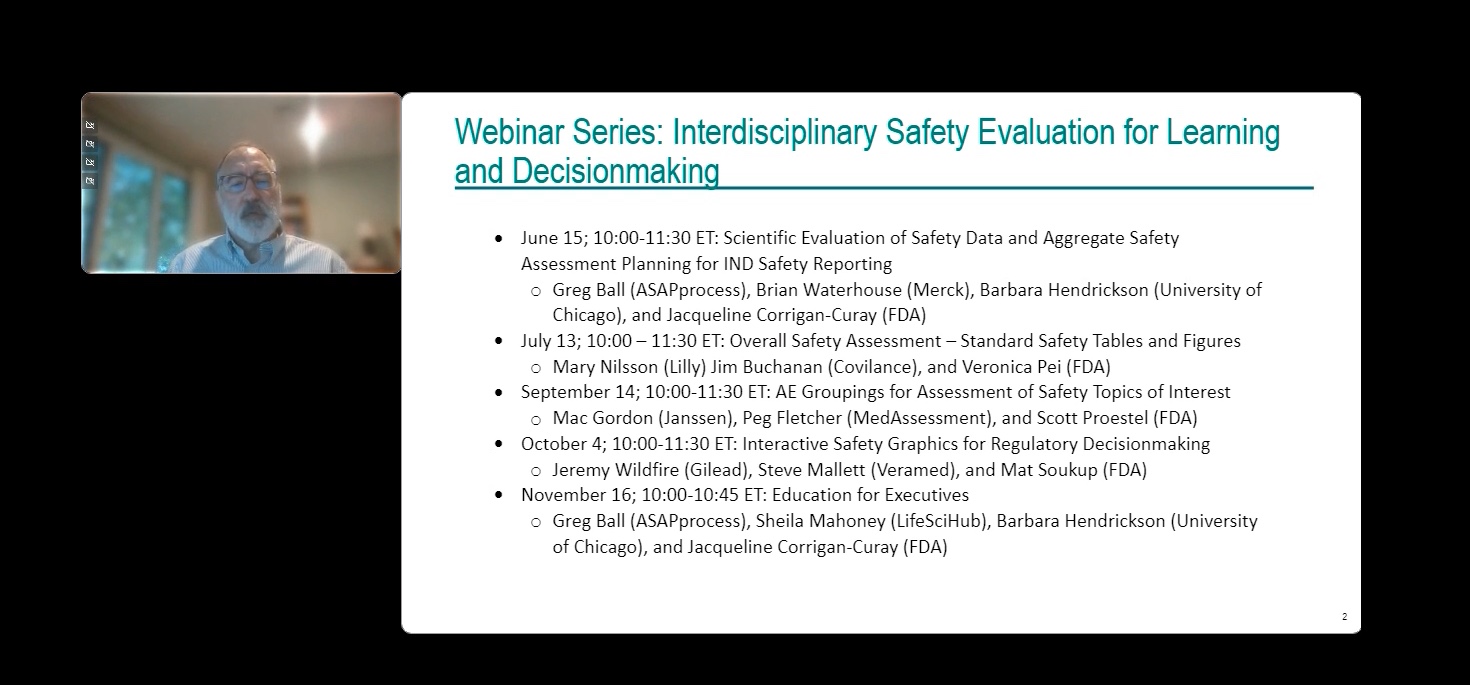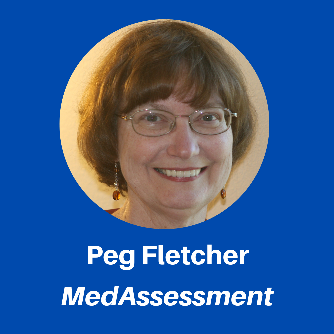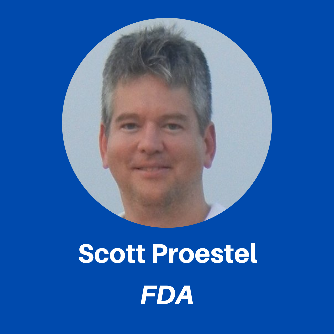| Catch up Here! |
|---|
| This Webinar took place 14 September 2023. Catch up by viewing the recording or reading the slides. |
Webinar 3: Overall Safety Assessment – AE Groupings for Assessment of Safety Topics of Interest |
|---|
Abstract: Planning for the analysis of safety topics of interest in advance of clinical trial conduct is a critical component of performing successful safety analyses. Such planning should include identifying medically important adverse events that qualify as safety topics of interest, identifying the information that should be collected for each of the topics and specifying the analyses to be conducted. Existing groupings of adverse events such as FDA Medical Queries and Standardised MedDRA Queries can be used to define safety topics of interest, and custom groupings may need to be created if the existing groupings are not sufficient. Planning the safety analyses in advance whenever possible can help prevent problems such as finding that important information relevant to the safety assessment was not collected during the trial. This webinar will present examples and critical points to consider when selecting safety topics of interest, using major adverse cardiovascular events (MACE) as an example, and discuss the utility of prespecifying AE groupings when conducting routine safety signal detection. This webinar is the third of five webinars related to interdisciplinary safety evaluation, with the overall goal to improve the content and implementation of safety analysis for medical research, to lead to better data interpretations, better decision-making and increased efficiency in the clinical drug development and review processes. |
| Presenter | Bio |
|---|---|
Greg Ball, ASAP Process ConsultingGreg Ball served in the Navy and taught High School maths and physics before earning his master’s in statistics from Purdue and his PhD in Biostatistics from the University of Texas. His research on blinded safety monitoring procedures is being developed in collaboration with statistical and clinical scientists at several pharmaceutical companies (including AbbVie and Merck). With Mary Nilsson, Greg co-leads the PHUSE Safety Analytics Working Group. Greg established, with Bill Wang, the ASA Biopharm Safety Monitoring working group and has been pioneering the joint DIA-ASA Interdisciplinary Safety Evaluation (DAISE) scientific working group, to advocate for aggregate safety assessments and cross-disciplinary scientific engagement. | |
Mac Gordon, Janssen Research & DevelopmentMac Gordon has a master’s in statistics and graduate certificates in public health, pharmacovigilance and pharmacoepidemiology and has been with Janssen for 15 years and in industry for 20 years. He has been involved with lupus research since joining the organisation, with focus areas in late-development immunology and clinical trial safety. Mac has been heavily involved in pharmacovigilance, signal detection and safety data visualisation for most of his career, including membership in several multi-disciplinary industry/regulatory working groups. Prior to joining Janssen, Mac developed a safety surveillance and signal detection team at Cephalon. He is currently the Clinical Team Statistical Lead across 11 indications and several therapeutic areas. Outside of clinical research, Mac is involved in many internal teams focused on safety statistics and process development initiatives and continues to represent the organisation in external safety working groups. | |
Peg Fletcher, MedAssessmentPeg Fletcher received her MD and PhD (in biochemistry) from the University of Chicago and boards in oncology and clinical pharmacology. A safety executive with over 25 years’ experience in development and pharmacovigilance in both large and small pharma, Peg has led teams defining and implementing AE groupings in safety reviews, submissions and signal detection. For the past 12 years she has led MedAssessment, a small pharmacovigilance CRO focused on helping small and medium pharma and biotech evaluate safety data and balance corporate obligations with patient safety, particularly in early development. | |
Scott Proestel, FDAScott Proestel, MD, is Acting Associate Director of the Biomedical Informatics and Regulatory Review Science Team at the US Food and Drug Administration (FDA)’s Center for Drug Evaluation and Research (CDER). He completed his internal medicine training at Johns Hopkins Hospital and obtained his medical degree from Columbia University Vagelos College of Physicians and Surgeons. Scott has previously worked as an FDA medical officer and team leader conducting and supervising pre-market reviews of new drug applications, overseen HIV clinical trial conduct as an Office Director at the US National Institutes of Health, and worked as an FDA Division Director responsible for post-market safety surveillance at CDER as well as the FDA’s Center for Biologics Evaluation and Research. Scott’s most recent informatics research assessed the use of artificial intelligence to evaluate spontaneous safety reports submitted to the FDA Adverse Event Reporting System and Vaccine Adverse Event Reporting System. |
| In Partnership With | |||
|---|---|---|---|







